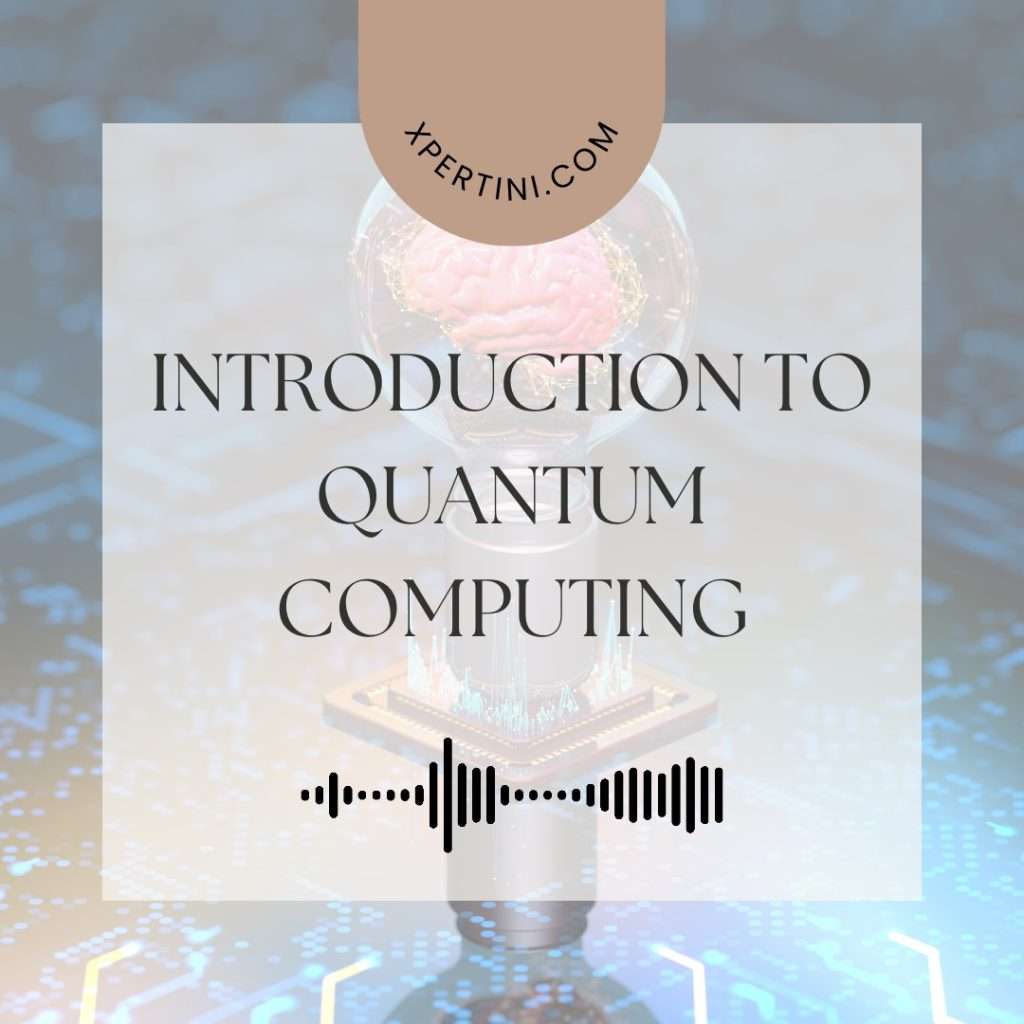Introduction to Quantum Computing
Course Summary
In this comprehensive Quantum Computing course, participants begin a journey through the multifaceted domain of quantum information processing. Delving into the foundations of quantum mechanics, the course introduces the fundamental principles governing quantum bits (qubits) and their unique properties of superposition and entanglement. ## Learners explore Quantum Gates, the building blocks of quantum circuits, and comprehend their role in executing complex algorithms.
The course navigates through Quantum Algorithms, illuminating how they harness quantum parallelism to outpace classical counterparts. Quantum Machine Learning Algorithms showcase the convergence of quantum computing and artificial intelligence, providing a glimpse into the transformative potential of this synergy.
Moving into Quantum Simulations and Optimization, the course elucidates how quantum systems can efficiently simulate complex quantum phenomena, offering practical applications in drug discovery and materials science. Quantum Optimization Algorithms redefine problem-solving approaches, highlighting their exponential speed advantage in navigating vast solution spaces.
Exploring Quantum Programming Languages, learners unravel the intricacies of Qiskit and Cirq, developed by IBM and Google, respectively. Practical insights into Quantum Computing frameworks deepen the understanding of designing, simulating, and executing quantum circuits.
The course uncovers the pivotal role of Quantum Computing in diverse fields, emphasizing its applications in cryptography, security, finance, and optimization problems. Learners grasp the unbreakable security promises of Quantum Key Distribution (QKD) and witness the potential quantum computing holds for revolutionizing financial strategies and solving optimization problems.
However, the journey doesn’t merely showcase quantum capabilities but addresses the challenges faced. Quantum Error Correction and current limitations in quantum hardware unveil the complexities of maintaining qubit coherence and advancing scalable quantum systems.
As the course concludes, participants gain a profound understanding of quantum computing’s applications, challenges, and its burgeoning significance in various industries. Armed with this knowledge, individuals are well-positioned to explore the diverse career opportunities in this transformative field, equipped with the skills necessary to contribute to the quantum computing landscape.
Course Overview
Quantum Computing is a revolutionary field at the intersection of physics and computer science, promising unprecedented computational power. This course provides a foundational understanding of quantum principles, algorithms, and applications. It is designed for individuals aspiring to pursue a career in quantum computing and those seeking to enhance their knowledge in this cutting-edge domain.
Course Objectives
- Understand the fundamental principles of quantum mechanics and their application to computing.
- Explore quantum algorithms and their potential advantages over classical algorithms.
- Gain proficiency in using quantum programming languages and tools.
- Analyze real-world applications of quantum computing in various industries.
- Develop problem-solving skills using quantum algorithms.
- Recognize the challenges and limitations of current quantum computing technologies.
- Discuss the historical development of quantum computing.
- Explore the ethical implications of quantum computing.
- Collaborate with peers in solving quantum computing-related problems.
- Investigate potential career opportunities in the field of quantum computing.
Course Outcomes
- Articulate the basic principles of quantum mechanics.
- Demonstrate the ability to solve problems using quantum algorithms.
- Analyze and compare quantum and classical computing approaches.
- Apply quantum programming languages to develop simple quantum algorithms.
- Discuss the historical evolution of quantum computing.
- Evaluate the ethical considerations in quantum computing applications.
- Collaborate effectively in a team to solve quantum computing challenges.
- Critically analyze the current limitations and challenges in quantum computing.
- Explore real-world applications of quantum computing across industries.
- Formulate informed opinions on potential career paths in quantum computing.
Course Audience
- Aspiring quantum computing professionals
- Computer science enthusiasts
- Researchers and academics in physics and computer science
- Professionals seeking to diversify their skill set
- Individuals intrigued by the potential of quantum technologies

